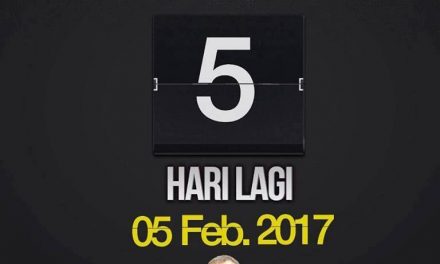.jpg)
In his well-known book, Al-Hikam (Words of Wisdom), sheikh Ahmad ibn `Ataa'illah as-Sakandari says:
How often has a long life brought about so little, and how often has a short life brought about so much. If someone’s life is blessed, he will reach, in a short time, bounties from Allah that cannot be expressed in words or comprehended in descriptions.
In Islamic terminology, especially in Sufism, there is a lot of attention given to what is called barakah (blessing). Blessing is defined as the divine good displayed in something. When we invoke Allah's blessing in something, this means that we would have favorable results due to the divine blessing.
The Sheikh says in this word of wisdom: "How often has a long life brought about so little, and how often has a short life brought about so much." He wants to say that someone may live for so many years but there is no blessing in his life, and that some other person may live for a short time but there is much blessing and great good in his life.
Then, the Sheikh says: 'If someone's life is blessed, he will reach, in a short time, bounties from Allah that cannot be expressed in words or comprehended in descriptions'. This means that you cannot count Allah's bounties in a blessed life even if it were to be short.
We have a good example in Prophet Muhammad's life. During the twenty years which he lived after receiving Allah's revelation, he conveyed Allah's message to the world at his time, and he changed the course of human history until the Day of Judgment. The Prophet's life was a blessed life which brought about much good and success to all people of all ages in all aspects of life.
Some of the Prophet's companions died at the age of thirty or forty, but they contributed greatly to the faith. Mus`ab ibn `Umayr (may Allah be pleased with him), for example, died when in his twenties, but he served the cause of da`wah (the call for the faith) in Madina before the Prophet's immigration. Abu Bakr as-Siddiq (may Allah be pleased with him) ruled Muslims for three years only, but he founded a strong state and protected Islam against its many enemies at that time.
Many imams and scholars, such as, Shafi`i, abu Hamid al-Gazali, ibn al-Qayyim, died in their fifties. Yet, they left behind dozens of influential books and thousands of students. Today, after many centuries of their passing away, their knowledge and wisdom still benefits millions of people every day.
Because Allah knows that we are far behind those great people, He placed His blessings (barakah) in certain times and places. For example, Allah filled the Night of Destiny with infinite blessings
{We have indeed revealed this (Message) in the Night of Power: And what will explain to you what the night of power is? The Night of Power is better than a thousand months. Therein come down the angels and the Spirit by Allah's permission, on every errand; Peace! This until the rise of morn!}. ( Al-Qadr 97)
Worshipping Allah in this night is better than worshipping Him for a thousand months other than this night.
Allah also made Friday a blessed day. The hour before the dawn is a blessed hour. The early hours of the day are blessed by Allah. If you get up early, everything you do will be blessed, be it work, worship, sport, or anything.
Allah has also chosen some places to be more blessed than others. Allah says:
{Limitless in His glory is He who transported His servant by night from the Inviolable House of Worship at Mecca to the Remote House of Worship at Jerusalem – the environs of which We had blessed} (Al-Israa’ 17:1)
{Behold, the first house ever set up for mankind was indeed the one at Bakkah [Mecca]: rich in blessing, and a source of guidance unto all the worlds}. (Aal `Imran 3:96)
These places have been blessed by Allah in a special way.
There is abundant blessing (barakah) in sincerity. When something is done with pure sincerely for Allah, it will certainly be blessed. A sincere life is a blessed life, which cannot be expressed in words or comprehended in descriptions.
=====
ٍSource: www.onislam.net — Ibn Ataa's Pearls of Wisdom — Jasser Auda




